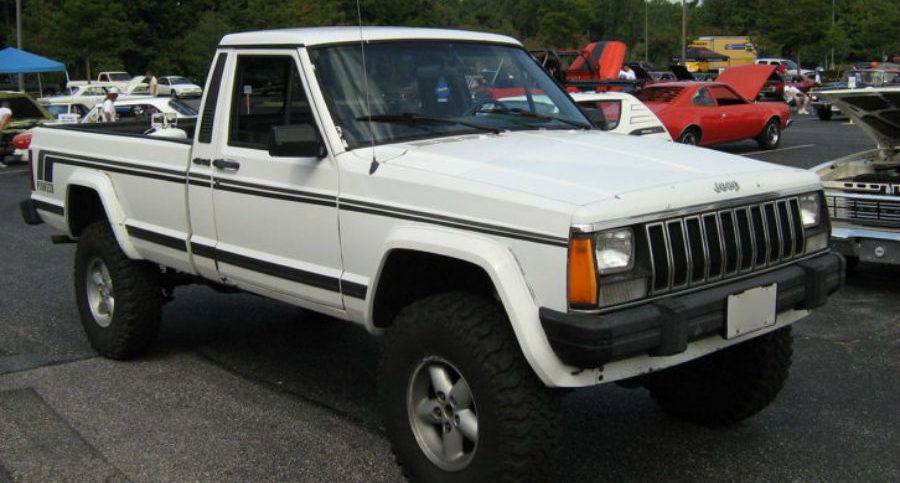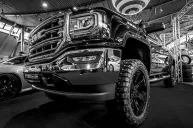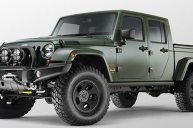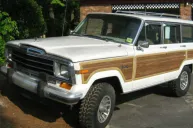The Jeep Comanche is quickly becoming a classic. Between the reliability, longevity, unique unibody design, and scarcity, the iconic "last Jeep pickup truck" is set to be a highly coveted model within the next five to ten years.
In the last half a decade alone, the value and demand for well-maintained Comanches have skyrocketed. As recently as 2014-15, you might have been able to find a nice Comanche for under $2,500. Today, you'd have a hard time finding a reliable Jeep model for less than $3,500-4,000, with some models reaching the $10,000 range.
Stay tuned to find out why exactly the canceled Jeep Comanche is still in such good graces almost two decades after Jeep ended its production.
How Many Jeep Comanches Were Made?
When you're looking at the future value of a potential classic, one of the first things to consider is the scarcity of the model and year. Over the production life of the Comanche, fewer than 200,000 were made.
As a point of reference, more Jeep Wranglers were made in the first three years of its production than the Comanche in its lifetime. More Jeep Cherokees, in which the Comanche's mechanical system is rooted, were produced in 2015 alone. There are more Ferraris on the road than Comanches.
The only issue with the Comanche, however, is rust. If a Comanche weren't well-maintained, it would rust. Badly. Because of this, many of these less-than-200,000 Comanches haven't made it to 2019. Overall, however, well-kept Jeep Comanches were extremely durable, which means the ones that did make it are usually in pretty good condition.
So, in terms of scarcity, the Comanche is looking good. Few were made and even fewer made it to today. The ones that did, though, have remained quite nice.
Read More: See Why the Chevy Silverado 6?—6 Is the Most Expensive Chevy Truck
Are Jeep Comanches Good Trucks?
Oh, boy, are they. Outside of the rust issue, they are remarkably reliable and have unheard-of longevity for their production era. Their drivetrain is known to be particularly sturdy and can sometimes outlive the rest of the vehicle. It is not unusual to get 250,000-275,000 miles out of a 1988-92 Comanche, which is sort of baffling, considering most buyers today are happy getting around 200,000 miles out of an early-2000s era automobile.
Another great attribute of the Comanche is that Jeep parts from this era of production are extremely cheap to replace. On top of being highly reliable, maintenance is quite affordable when it does come up.
The Comanche pickup came in several configurations. Your best options are those with the 4.0 cylinder and four-wheel drive instead of the earlier 2.5-liter, rear-wheel options. These four-cylinder models come in four-speed automatic transmission and five-speed manual transmission. The Jeep Comanche Pioneer, Jeep Comanche Chief, and Comanche Eliminator trims offer higher values, as well, in terms of body style, power, and functionality.
The front suspension of the Jeep Comanche is a clone of the Cherokee suspension, however, the Comanche's rear suspension is considerably taller. This allows the Comanche to have a much higher payload and carrying capacity than what you are used to in compact trucks. Even mid-sized trucks struggle to keep up in terms of handling when loaded with 2000+ pounds of weight.
Lastly, late Jeep Comanches got quite good fuel economy for a pick-up truck of this era. New, they received about 21-23 mpg.
Then, Why the Hell Was the Comanche Discontinued?
Some things aren't as appreciated during their own era as they should be. In 1987, Chrysler purchased Jeep. Around the same time, the already sparse Comanche sales numbers began to sink. Chrysler had a vision for how their newly-purchased Jeep company would fit in with Dodge's productions, and these low sales numbers confirmed their vision. By 1992, Chrystler ceased all Jeep pick-up truck production and design to allow Dodge to take over all Chrysler truck production.
The Jeep pickup truck was succeeded by the Dodge Dakota. In 2019, the Jeep Gladiator was chosen for revival over the Comanche and Wagoneer. However, the Jeep Comanche lives on. In fact, it has only grown in stature since production ended. Soon, the Comanche pickup will be a coveted classic for the history books.
This post was originally published on July 30, 2019.




